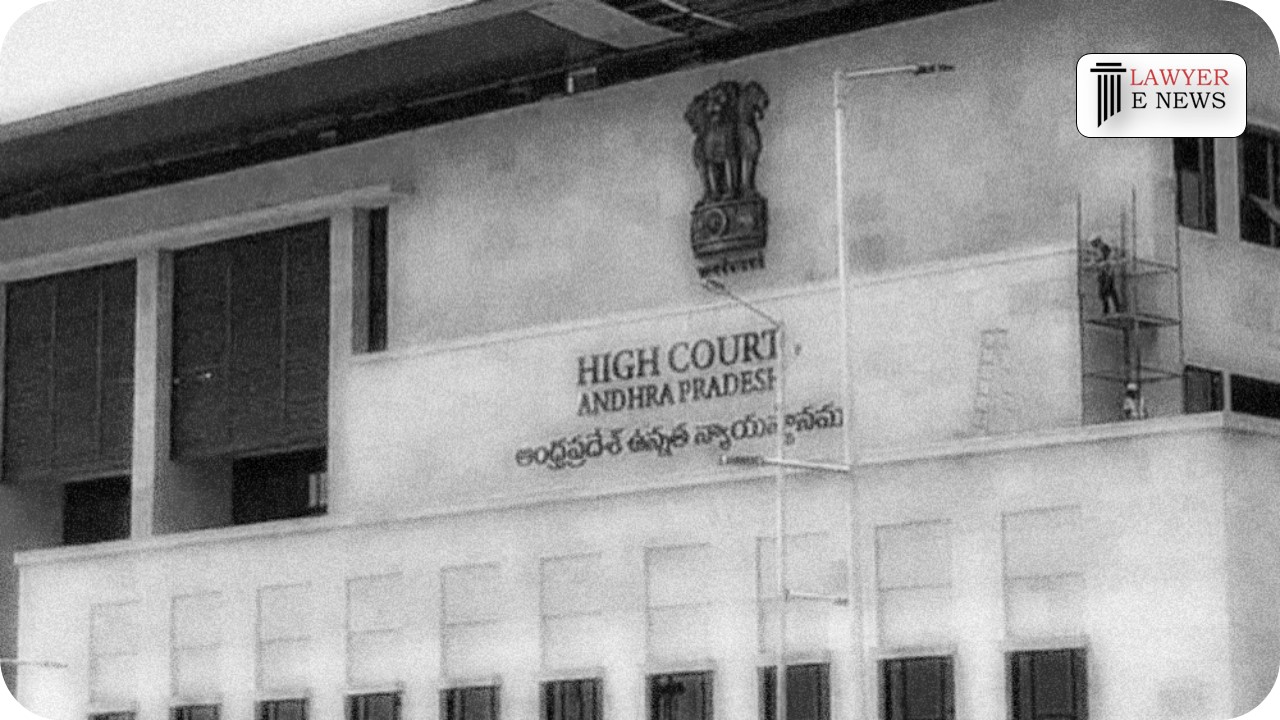-
by Admin
15 February 2026 5:35 AM



Andhra Pradesh High Court upholds trial court's decision on 1952 family partition, emphasizing limitations of POA testimony in property disputes.
Introduction:
The High Court of Andhra Pradesh, in a judgment delivered by Justice Venuthurumalli Gopala Krishna Rao, has dismissed the appeal in the long-standing partition case concerning the Murarisetti family properties. The appeal, registered as First Appeal No. 107 of 1999, was filed against the Senior Civil Judge's partial decree dated September 25, 1998, in O.S. No. 29 of 1983. The High Court's decision affirms the trial court’s findings on the family partition that occurred in 1952 and recognizes the validity of the documentary and oral evidence presented by the defendants.
Facts of the Case:
The case revolves around the partition and separate possession of properties among the five sons of Murarisetti Kotaiah: Venkata Subbaiah (the appellant’s father), Rama Kotaiah, Gurunadham, Venkata Rathnam, and Ranganadham. The appellant, represented by his legal heirs, sought a 1/5th share in the family properties, claiming they remained joint and unpartitioned. The defendants contended that a partition occurred in 1952, supported by a subsequent partition list.
Court Observations and Views:
Credibility of Power of Attorney Holder:
Justice Gopala Krishna Rao underscored the limitations of relying on a Power of Attorney (POA) holder's testimony in matters requiring personal knowledge. "A general power of attorney holder can act on behalf of the principal but cannot testify on matters necessitating personal knowledge of the principal," the court cited from the Supreme Court precedent in Janki Vashdeo Bhojwani v. Indusind Bank Ltd.
Partition and Documentary Evidence:
The High Court found the trial court had rightly relied on documentary evidence, including the partition list (Ex.B-2) and various sale deeds, to support the defendants' claim of an earlier partition. "The evidence on record clearly establishes that the properties in question were partitioned in 1952, and subsequent transactions were conducted independently by the family members," noted Justice Gopala Krishna Rao.
Legal Reasoning:
The judgment elaborated on the principles governing family partitions and property rights. The court reiterated that once a partition is established through credible evidence, subsequent claims of joint ownership must be substantiated by concrete proof. "The plaintiff's failure to provide evidence of continued joint family properties weakens their case," observed the court, affirming the trial court's reliance on both oral and documentary evidence.
Quotes from the Judgment:
Justice Gopala Krishna Rao remarked, "The appellant's reliance on the POA holder's testimony, devoid of personal knowledge about the joint family properties, cannot override the comprehensive evidence presented by the defendants."
Conclusion: The High Court's dismissal of the appeal reaffirms the trial court's findings and the legal principles surrounding family partitions. By confirming the 1952 partition and the subsequent individual property rights, this judgment sets a precedent for future disputes of a similar nature. The court's decision underscores the importance of credible documentary evidence and the limitations of POA testimonies in complex family property disputes.
Date of Decision: 5th July 2024
Murarisetti Subbarao (Deceased, represented by LRs) vs. Murarisetti Ramakotaiah and Others
